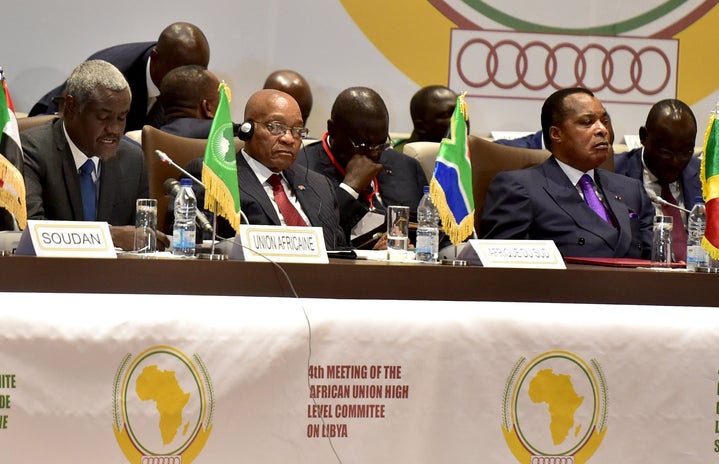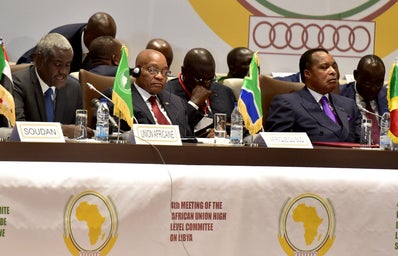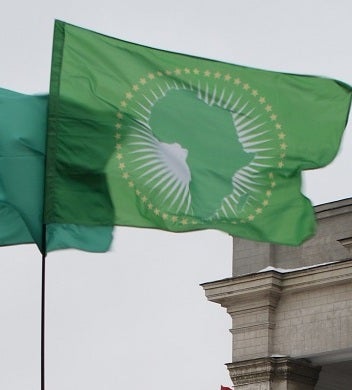The African Union (AU) was founded as a way of promoting solidarity between African countries promoting economic growth and conflict prevention. With 55 members, it was launched in 2002 as a substitute for the Organization of African Unity (OAU).
HISTORY
The predecessor, The Organization of African Unity, was formed in 1963, with 32 members, aimed at promoting solidarity and cooperation for achieving a better life for African people, defending integrity and independence.
But in its first decade of existence, it suffered from several problems. The first one came from the fact that some countries were still colonies, such as Angola, Mozambique, Guinea-Bissau and São Tomé & Principe belonged to Portugal. Secondly, the members could not agree on many political ideals.
The clause of non-interference led to the climax of problems. Article 3 stated that members must adhere to the principles of non-interference in the internal affairs of states. In other words, a country could not interfere in others’ actions, but when was that reasonable?
Taking into consideration all the issues, the organization had to be reviewed, so in 1999 some members got reunited and made the Sirte Declaration, stating that in the new century it is necessary a stronger unity, solidarity, and cohesion in a larger community of people, transcending cultural, ethnical and national differences. In 2002 the African Union was established representing a dynamic force and including all countries.
In 2004, the constitution was released with a peace and security council with the explicit permission of interference in countries in case of military and humanitarian conflicts, ending the problem on article 3, which led to the first rupture in the organization.
ORGANS
The union has many committees to regulate and guarantee the relations between its members, like the assembly, represented by every state chief, which is the supreme policy and decision-making. It establishes its priorities with an annual program and also monitors the implementation of policies and decisions.
Secondly, we have The Executive Council, which coordinates and takes decisions in areas of common interests and is composed of ministers. Some of its functions are ensuring the promotion of gender equality and preparing and selecting members for the assembly.
The Union peace and security council are responsible for the prevention, management, and resolution of conflicts. It is responsible for anticipating and preventing disputes and conflicts, as well as policies, which may lead to genocide and crimes against humanity. The council also supports and facilitates humanitarian action in situations of armed conflicts or major natural disasters, as well as undertakes peace-making and peacebuilding functions to resolve conflicts where they have occurred.
2063 AGENDA
The agenda is the master plan for transforming Africa into a global powerhouse, prioritizing social and economic development, and leading Africa to become a dominant player in the world.
There are six aspirations to be achieved are:
- A prosperous Africa based on inclusive growth and sustainable development.
- An integrated continent politically united and based on the ideals of Pan-Africanism and the vision of Africa’s Renaissance.
- An Africa of good governance, democracy, respect for human rights, justice, and the rule of law.
- A peaceful and secure Africa.
- An Africa, whose development is people-driven, relies on the potential of African people, especially its women and youth, and caring for children.
- Africa is a strong, united, resilient, and influential global player and partner.
AU X EU
Both African and the European Union are political groups that visualize economical, social, and emotional development for their continent and have some similarities, such as constitution, committees, and goals. They diverge on the fact that the European Union established a common currency and interferes with the economical aspects of each country, something that the AU does not do.
Marking five years since the last meeting in February, members from both unions got reunited in Brussels to renew their partnership and share their common vision for the 2030 agenda for sustainable development. The objectives are solidarity, security, peace, and sustainable development for the citizens of the unions.
European Union plans on investing €150 million in Africa supporting the 2063 agenda, which aims on boosting green energy, job creation, digital transformation, and education.
Charles Michel, the president of the European Council stated: “A new, forward-looking and ambitious spirit has emerged on which this special partnership between Europe and Africa must be founded”.
In summarizing, the African Union was founded visualizing a better development for its continent. With a global impact, this political organization deserves to get attention and recognition.
—————————————————————–
The article above was edited by Isabela Novelli.
Liked this type of content? Check Her Campus Casper Libero’s home page for more!



